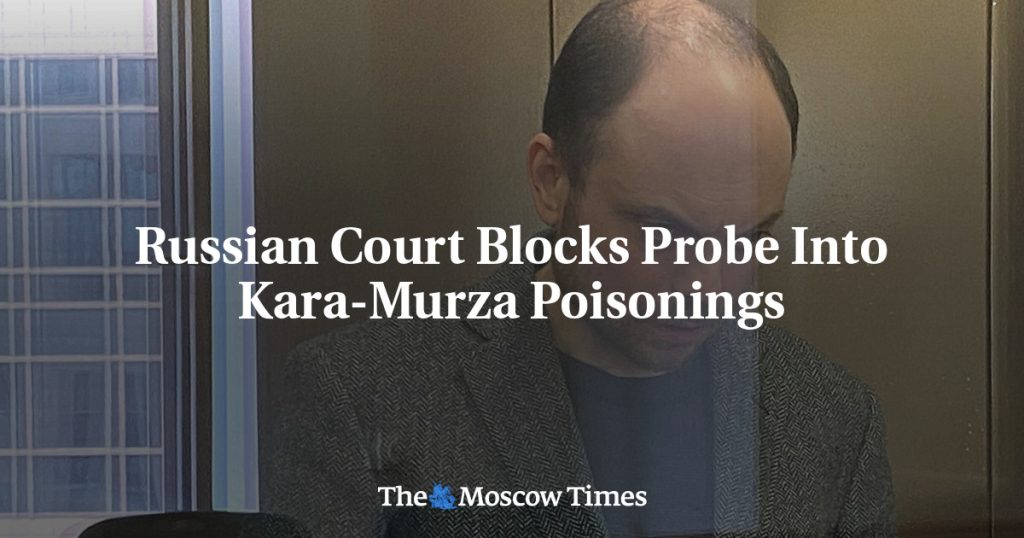A Moscow court ruled that investigators acted lawfully in refusing to investigate two alleged murder attempts against Kremlin critic Vladimir Kara-Murza. Kara-Murza fell severely ill in 2015 and 2017 with symptoms indicating poisoning, but no inquiry was opened by Russia’s Investigative Committee. A 2021 Bellingcat investigation suggested the involvement of FSB agents. The dissident, currently serving a 25-year prison sentence for treason, described his severe health issues linked to these incidents during the court hearing.
Concerns for Kara-Murza’s health have increased following the death of opposition activist Alexei Navalny in prison in February under unclear circumstances. Kara-Murza, a dual citizen of Russia and Britain, suffers from serious health problems believed to be linked to the alleged poisoning attempts. He was imprisoned in 2023 after criticizing Russia’s invasion of Ukraine and advocating for Western sanctions against the Kremlin. Despite appeals from his lawyers arguing the illegality of his sentence, Russia’s top court upheld the 25-year prison term.
Despite the evidence presented, the investigators did not take action, leading to criticism and further fear for Kara-Murza’s safety. The dissident’s health has deteriorated following the alleged poisoning incidents, raising concerns about his well-being. The refusal to investigate these incidents, despite the serious consequences for the dissident’s health, has raised questions about the Russian judicial system’s handling of political dissidents.
The court ruling highlights the challenging environment faced by critics of the Russian government, with dissidents like Kara-Murza facing imprisonment and health risks for their opposition to the regime. The case sheds light on the limited protections for political dissent in Russia, where critics of the government are often targeted and face retaliation for speaking out against the state. The ruling also underscores the risks faced by individuals who challenge the Kremlin’s authority and the lack of accountability for those responsible for targeting dissidents.
The continued imprisonment and lack of investigation into the alleged poisoning attempts against Kara-Murza illustrate the broader crackdown on dissent in Russia under President Vladimir Putin’s leadership. The ruling reflects the government’s unwillingness to address cases involving opposition figures and holds implications for the future of political dissent in the country. Kara-Murza’s case is emblematic of the challenges faced by those who oppose the Russian government and highlights the dangers associated with speaking out against the regime.
Overall, the court ruling in Kara-Murza’s case underscores the ongoing threats faced by dissenters in Russia and the lack of accountability for attempts on their lives. Despite mounting evidence pointing to FSB involvement in the alleged poisoning incidents, authorities have failed to investigate, raising concerns about the safety of political opponents. The ruling highlights the broader human rights issues in Russia and the need for international attention and action to address the persecution of dissenters in the country.


